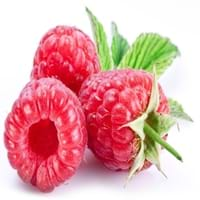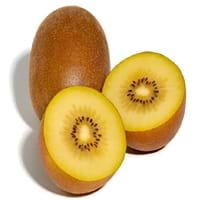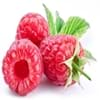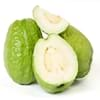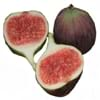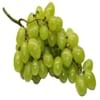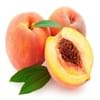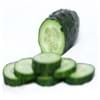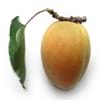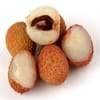Health Benefits
Cancer prevention, Heart care, Prevents macular degeneration, Reduces blood circulation problems
Asthma treatment, Heart care, Improves stomach health, Regulation of heart rate, Treatment of skin Diseases
General Benefits
Anti-inflammatory properties, Controls blood sugar levels, Digestive aid, Eye care, Helps in weight loss
Boosts immune system, Controls blood pressure, Eye care, Helps in weight loss
Skin Benefits
Anti-aging benefits, Brightens and lightens complexion
Brightens and lightens complexion, Heals sunburn, Reduces wrinkles, Skin rejuvenation, Treatment of acne, Treatment of dark spots, Treatment of skin diseases
Hair Benefits
Acts as moisturizer, Regulates hair growth, Shiny hair
Prevents hair loss, Promotes longer and healthier hair, Treatment of dandruff
Allergy Symptoms
Breathing difficulty, Eczema, Hives, Itching, Nasal congestion, Runny nose, Sneezing, Watery eyes, Wheezing
Abdominal pains, Anaphylaxis, Breathing difficulty, Itching in tongue and other parts of mouth, Itching sensation in throat, Swelling of mouth, tongue or lips, Vomiting
Side Effects
Allergic reaction
Allergic reaction, Diarrhoea, Skin rash, Possibly unsafe during pregnancy
Best Time to Eat
Best if taken as a breakfast (or empty stomach), As a snack in the late afternoon, Don't eat after meal, Morning time (before lunch)
Any time except an hour after meal
Vitamin B5 (Pantothenic Acid)
Vitamin C (Ascorbic Acid)
Vitamin K (Phyllochinone)
Calories in Fresh Fruit with Peel
Calories in Fresh Fruit without Peel
Not Available
Not Available
Calories in Frozen Form
Not Available
Season
Summer
Spring, Summer, Winter
Varieties
Amity, August Red, Boyne, Canby, Caroline, Comet, Dinkum, Dorman Red, Latham, Meeker, Black Hawk, Hayda, Lauren, Meeker and Latham
Qing Yuan #27, Qing Yuan #29, Qing Yuan #6 and Huang Yan
Color
Black, Purple, Red, Yellow
Brown, Yellow
Origin
Europe, North Asia
China
Soil Type
Sandy loam
Well-drained
Climatic Conditions
Cold
Cold, Sunny
Facts about
- There are more than 200 varieties of raspberries.
- In USA, 90% of the raspberries are grown in Washington, California and Oregon.
- They do not ripe after they are picked.
- A raspberry contain 100 to 120 seeds.
- The name Kiwi is due to its resemblance with 'Kiwi' bird.
- This variety of Kiwi was developed by New Zealand, it is not fuzzy on the outside and it has a taste reminiscent of the mango fruit.
Top Producer
Russia
Italy
Other Countries
Azerbaijan, Canada, Mexico, Poland, Serbia, Spain, Ukraine, United Kingdom, United States of America
Chile, France, Greece, Iran, Japan, New Zealand, Portugal, Turkey, United States of America
Top Importer
United States of America
United States of America
Top Exporter
Poland
New Zealand
Botanical Name
Rubus Idaeus
Actinidia chinensis
Synonym
Not Available
Not Available
Subkingdom
Tracheobionta
Tracheobionta
Division
Magnoliophyta
Magnoliophyta
Class
Magnoliopsida
Magnoliopsida
Subclass
Rosidae
Dillenhidae
Family
Rosaceae
Actinidiaceae
Species
R. idaeus
A. chinensis
Compare Raspberry and Gold Kiwi
It is important compare Raspberry and Gold Kiwi as both the fruits have a different nutritional value. Their comparison can be done on the basis of their vitamin and mineral content, calories, benefits as well as characteristics, making it easier for us to choose the best fruit for our diet. Their general health benefits are as follows:
Raspberry Benefits: anti-inflammatory properties, controls blood sugar levels, digestive aid, eye care and helps in weight loss.
Gold Kiwi Benefits: boosts immune system, controls blood pressure, eye care and helps in weight loss.
Fruits are also used as a remedy for various hair problems. The hair benefits of Raspberry are: acts as moisturizer, regulates hair growth and shiny hair and hair benefits of Gold Kiwi are: prevents hair loss, promotes longer and healthier hair and treatment of dandruff. Some fruits are known to cause allergic reactions. The allergy symptoms of first fruit are: breathing difficulty, eczema, hives, itching, nasal congestion, runny nose, sneezing, watery eyes and wheezing and the symptoms of second fruit are: abdominal pains, anaphylaxis, breathing difficulty, itching in tongue and other parts of mouth, itching sensation in throat, swelling of mouth tongue or lips and vomiting. Get sorted Raspberry vs Gold Kiwi comparison with the help of fruit comparison tool by fruitvs.com.
